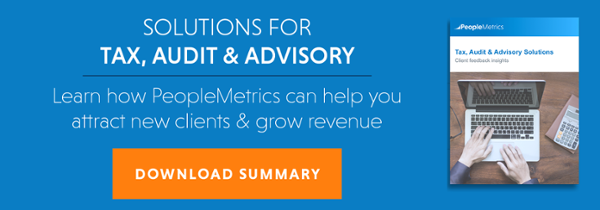Everybody works hard. There’s a reason that no hiring manager has ever been blown away by the answer “I’m a hard worker” when they ask why they should hire you.
We all consider ourselves hard workers, but only a small percentage of the workforce will ever experience the seemingly infinite, grueling hours that Certified Public Accountants (CPAs) experience from January 1st to April 15th every calendar year.
#CPALife
I grew up in a household where my mother and sister are both accountants, so I know all too well the “please don’t talk to me” glare that often paints the faces of my dear family members after finishing a 14 hour work day in the middle of January.
A close friend even told me recently that her CPA firm implemented a mandatory 80-hour work week from March 15th to the end of tax season.
As someone who is quite satisfied with my work/life balance, I can’t imagine adding another 30+ hours to my work week.
Every CPA deserves a medal (or a vacation) on April 16th.
The calm after the storm
So what happens when the dust settles and tax season is over?
CPA firms just experienced their most important client touchpoint of the year as far as billable hours, revenue and actual face time with the client are concerned. How do these critical financial partners gauge how satisfied their clients were with the experience?
More importantly, how do CPA firms know if a client is unsatisfied with their experience and ready to look for another partner?
Some proactive firms call their clients to collect qualitative insights, but how truthful is a client likely to be when asked for feedback directly as opposed to by a third party? And how actionable is the feedback from only a handful of clients?

The truth is, year in and year out, most CPA firms miss out on a fantastic opportunity to collect feedback about the client experience, quickly resolve points of friction, and identify at-risk clients before they start shopping around for other firms.
Getting a leg-up for next season
In an industry where firms are differentiated primarily on the basis of intellectual property, firms that deliver exceptional customer service have a competitive advantage over those that don’t.

Measuring client feedback allows CPA firms to learn and share best practices to attract new clients, introduce clients to additional product lines, benchmark against competitive firms on metrics like Net Promoter Score (measurement of a client’s likelihood to recommend your firm to friends and family), and differentiate on more than just intellectual property.

Finding a customer experience partner with intimate knowledge of the accounting industry will help your firm attract new clients, grow existing accounts, and stand out from other firms in the market.
Listen to your clients
This April, don’t miss out on the opportunity to listen to your clients and improve their experience with your CPA firm.
And if you’re not a CPA, take this opportunity to thank your local CPA for everything they do!
Matt Salvetti is a Market Development Specialist at PeopleMetrics. With a background in marketing and market research, he is passionate about helping organizations incorporate the voice of the customer and patient into strategic business decisions. Outside of work, Matt is a bit too passionate about the Philadelphia Eagles, Flyers, Sixers and Phillies. When not busy yelling at professional athletes on his TV screen, Matt is an expert at finding his way into (and sometimes out of) sand traps at his local golf course.
P.S. What did you think of this blog post?
 |
 |
 |







%20(1).png)